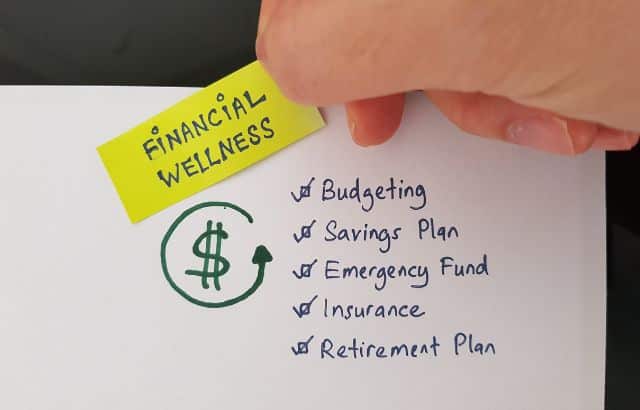Retirement planning can seem daunting, but it’s important to start early and have a solid plan in place. With this checklist, you can ensure that you’re on track to have a comfortable retirement and enjoy your golden years without financial stress.
Table of Contents
Plan your retirement
Celebrated Astro Strategist cum Business Astrologer Hirav Shah says, “I am talking about your plan to make your retirement financially secure. You must have seen that in addition to damaging the health of the people, Last year has also shaken the economic agenda of many people. Possibly, your goals, too, may have gone wrong. Therefore, if you are not cautious, then your retirement plan will fall into balance.
Imagine that you had to work a few more years before retiring to complete your plan. Then, suppose you have got medical facilities at the same affordable price as before retirement. But, what will happen to those who did not get this facility? “
We recommend that you reduce your expenses as much as possible. This is especially important if your job has gone away or your salary has been cut. Due to the lockdown, we are avoiding shopping, eating out, traveling, and daily trips. Use this time to prevent unnecessary expenses. The more you save today, the more you will be able to invest, and hence the chances of raising a good amount of money at the time of retirement will be better.
According to Hirav Shah, below are the following guidelines through which one can secure their retirement plan without getting affected by the uncalled situation
Few guidelines for retirement plan
Re-set your goals, add more revenue sources
You and your spouse can also think of adding new means of income from your skills and hobbies. The higher your income, the more you will be able to invest.
Re-negotiate EMI
Interest rates on most retail loans have come down in the last few months. This has reduced your EMI. So call your bank and negotiate EMI. What will you do with the remaining amount in this item? I suggest that you put it in your retirement plan.
Re-evaluate your portfolio, think of more allocation to equities.
This type of time is best to conduct a thorough review of your asset allocation. See if this is according to your plan. If not, it’s time to fix it. Your investment in different classes of properties must be correct. For example, it is necessary to have the right debt fund in your portfolio for liquid funds. When it comes to equity, choose the fund carefully and make sure that it is according to your risk profile. Aggressive equity funds rise and fall rapidly. See what is best for you and make sure you take the same fund.
Review your retirement goals
You just have to increase savings or expect that your income will increase over time. Middle-aged or senior professionals will have to review their retirement goals by themselves. The closer you are to retirement, the more you have to look back and set retirement goals accordingly. If necessary, postpone your retirement for a few years to get the desired amount.
Secure Your Future: Hirav Shah’s Guide to Retirement Planning
Strategies, Tips, and Expert Advice for Building a Financially Stable Retirement
Retirement planning is a crucial aspect of financial management, ensuring you have the resources to maintain your desired lifestyle after you stop working. Here’s a guide to help you get started:
- Set Your Retirement Goals: Determine your desired lifestyle in retirement, including expenses for housing, healthcare, travel, and leisure activities.
- Calculate Retirement Needs: Estimate your retirement expenses and income sources. Consider factors like inflation, life expectancy, and potential healthcare costs.
- Save Consistently: Start saving for retirement as early as possible. Contribute to retirement accounts such as 401(k)s, IRAs, or pensions. Take advantage of employer matching contributions if available.
- Invest Wisely: Develop an investment strategy based on your risk tolerance, time horizon, and retirement goals. Diversify your investments across different asset classes to mitigate risk.
- Monitor and Adjust: Regularly review your retirement plan and make adjustments as needed. Reassess your goals, investment performance, and changing life circumstances.
- Consider Healthcare Costs: Plan for potential healthcare expenses in retirement, including insurance premiums, deductibles, and long-term care needs.
- Maximize Social Security Benefits: Understand how Social Security works and strategize to maximize your benefits. Consider factors like timing of claiming benefits and spousal benefits.
- Pay Off Debt: Reduce or eliminate debt before retirement to free up more income for living expenses and leisure activities.
- Create a Withdrawal Strategy: Develop a withdrawal plan for accessing retirement funds. Consider factors like tax implications, required minimum distributions (RMDs), and sustainable withdrawal rates.
- Plan for Unexpected Events: Prepare for unexpected expenses or emergencies in retirement by maintaining an emergency fund and considering insurance options like long-term care insurance.
Remember, retirement planning is a dynamic process that requires ongoing attention and adjustments. Consulting with a financial advisor can provide personalized guidance tailored to your specific financial situation and retirement goals.
Secure Your Future retirement plan quotes
“Start early, retire happily.”
Explanation: The earlier you begin saving and investing for retirement, the more time your money has to grow through compounding returns.
Strategy: Begin contributing to retirement accounts as soon as possible, such as 401(k)s or IRAs, to take advantage of long-term growth opportunities.
Execution: Set up automatic contributions from your paycheck or bank account to ensure consistent savings over time.
“Plan for the worst, hope for the best.”
Explanation: It’s essential to prepare for unexpected events in retirement, such as health emergencies or market downturns, while remaining optimistic about your financial future.
Strategy: Establish an emergency fund to cover unforeseen expenses and consider purchasing insurance policies, such as health or long-term care insurance, for added protection.
Execution: Review and update your financial plan regularly to account for changes in your circumstances or market conditions.
“Diversify to thrive in retirement.”
Explanation: Diversifying your investment portfolio helps spread risk and maximize returns, providing stability and growth potential in retirement.
Strategy: Allocate your retirement savings across various asset classes, such as stocks, bonds, and real estate, to minimize the impact of market fluctuations.
Execution: Regularly rebalance your investment portfolio to maintain your desired asset allocation and adapt to changing market conditions.
“Live below your means, retire above your expectations.”
Explanation: Adopting a frugal lifestyle and saving more than you spend during your working years can lead to a more comfortable retirement.
Strategy: Create a budget and prioritize saving for retirement by cutting unnecessary expenses and focusing on long-term financial goals.
Execution: Track your spending, automate savings contributions, and avoid lifestyle inflation to build a substantial nest egg for retirement.
“Retirement is not the end; it’s a new beginning.”
Explanation: Retirement marks the start of a new chapter in life, offering opportunities for personal growth, leisure activities, and pursuing passions.
Strategy: Plan for meaningful activities and hobbies to stay engaged and fulfilled during retirement, whether it’s traveling, volunteering, or learning new skills.
Execution: Create a retirement vision board or bucket list to visualize your goals and aspirations, then take actionable steps to turn them into reality.
FAQs retirement planning
Conclusion
According to Hirav Shah, it is important to have a financial plan in place to secure your future and the future of your loved ones. Whether you are saving for retirement or simply preparing for unexpected expenses, having a solid financial plan can help ensure that your money is working for you. By safeguarding your wealth and investing wisely, you can live a fulfilling life and provide for those you care about even after you are gone.
Hirav Shah, a renowned financial advisor, emphasizes the importance of careful retirement planning. To ensure a comfortable retirement, it is crucial to calculate the amount of income needed to maintain your desired lifestyle. This involves taking into account various expenses, such as housing, healthcare, food, and entertainment. It is also important to consider any potential changes in expenses, such as downsizing your home or traveling more frequently. To determine the amount you need to save for retirement, you can use online retirement calculators or seek the guidance of a financial advisor.




























